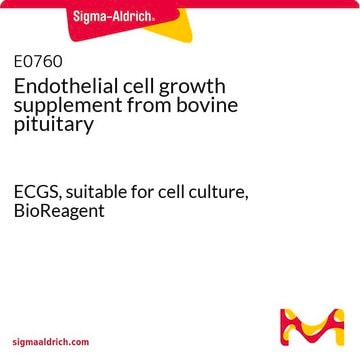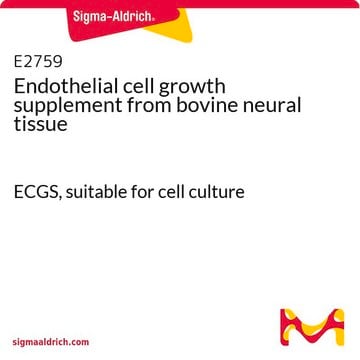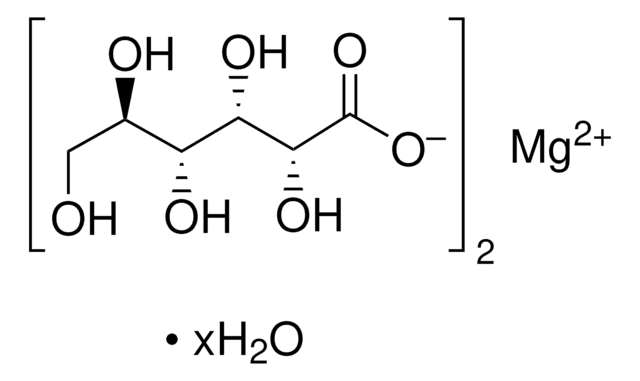G4500
Potassium D-gluconate
≥99% (HPLC)
Synonym(s):
2,3,4,5,6-Pentahydroxycaproic acid potassium salt, D-Gluconic acid potassium salt
About This Item
Recommended Products
biological source
synthetic (organic)
Assay
≥99% (HPLC)
form
powder
optical activity
[α]25/D 11°, c = 1% (w/v) in water
technique(s)
HPLC: suitable
color
white to off-white
mp
183 °C (dec.) (lit.)
solubility
H2O: 50 mg/mL
storage temp.
room temp
SMILES string
[K+].OC[C@@H](O)[C@@H](O)[C@H](O)[C@@H](O)C([O-])=O
InChI
1S/C6H12O7.K/c7-1-2(8)3(9)4(10)5(11)6(12)13;/h2-5,7-11H,1H2,(H,12,13);/q;+1/p-1/t2-,3-,4+,5-;/m1./s1
InChI key
HLCFGWHYROZGBI-JJKGCWMISA-M
Looking for similar products? Visit Product Comparison Guide
Application
Biochem/physiol Actions
Other Notes
Storage Class Code
11 - Combustible Solids
WGK
WGK 1
Flash Point(F)
Not applicable
Flash Point(C)
Not applicable
Personal Protective Equipment
Certificates of Analysis (COA)
Search for Certificates of Analysis (COA) by entering the products Lot/Batch Number. Lot and Batch Numbers can be found on a product’s label following the words ‘Lot’ or ‘Batch’.
Already Own This Product?
Find documentation for the products that you have recently purchased in the Document Library.
Customers Also Viewed
Our team of scientists has experience in all areas of research including Life Science, Material Science, Chemical Synthesis, Chromatography, Analytical and many others.
Contact Technical Service














